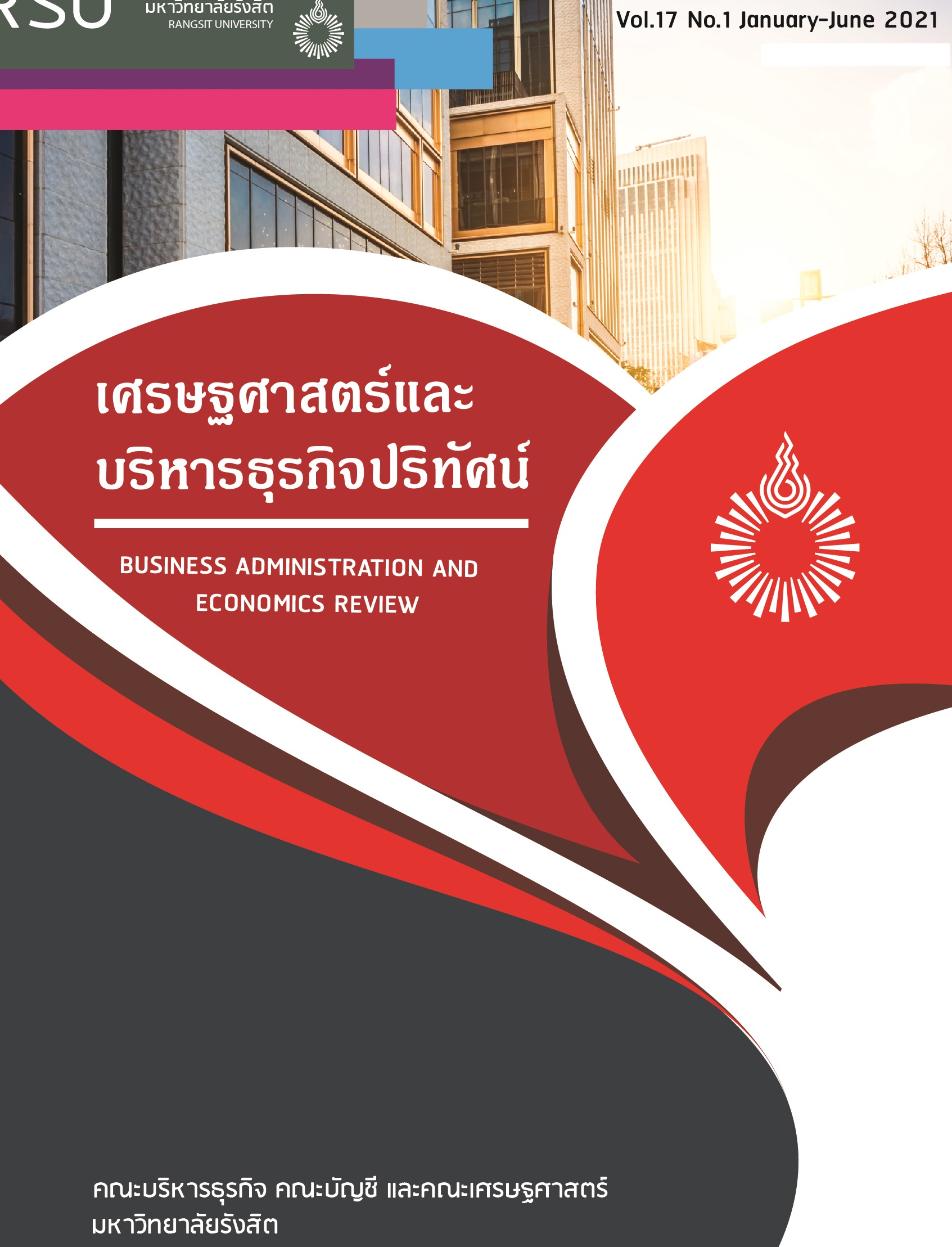Causal Relationship Model of Technology Acceptance and Use Affecting Shopee Application Using Behavior of Consumer in Bangkok Metropolitan Region
Keywords:
Technology Acceptance and Use, Application, Shopee, Intention, Use BehaviorAbstract
This research aims to develop a causal relationship model of acceptance and use of technology that affects the use of Shopee Application of the customers in Bangkok Metropolitan Region in order to investigate the consistency of the complex relationship model with the development of empirical data. The samples of this research from convenience sampling were 300 customers who used Shopee Application in Bangkok Metropolitan Region. The instrument was an online 7-point scale questionnaire by the structural equation modeling (SEM) and a package program was used to analyze the data in 6 aspects: (1) Performance Expectancy, (2) Effort Expectancy, (3) Social Influence, (4) Facilitating Conditions, (5) Behavioral Intention, and (6) Use Behavior. The research results found that the developed cause relationships have consistency with variable empirical data which have influence on Shopee Application’s consumer behaviors on many aspects. The most influences aspects are the intention behaviors, sufficient facilities, social influence and efficiency expectation respectively.
References
Chaveesuk, S. & Wongjaturapat, S. (2012). Unified Theory of acceptance and use of technology. KMITL Information Technology Journal, 1, 8-13.
Electronic Transactions Development Agency(ETDA). (2018). Thai e-Commerce in 2018, the amount surpassed 3.2 trillion baht. Retrieved March 19, 2019, from https://www.etda.or.th/th/Useful-Resource/documents-for-download.aspx
Kanjana Kitsakul, C. (2012). Research Methodology in Social Sciences. Tak: Project Five-Four Company Limited.
Klinsukon, C. (2019). Adaptation of Thai businesses in the E-commerce era. Retrieved March 19, 2019, from https://www.bangkokbiznews.com/blog/detail/646826
Ounreung, S. & Pankham, S. (2017). A Causal Relationship Model of Adoption and the use of Technology that Affect Behavior for the shopping Application on smart phones of the population in Bangkok and its vicinity. The 12th RSU National Graduate Research Conference. 12, 201.
Rangsungnoen, G. (2011). Factor analysis with SPSS and AMOS for research. Bangkok: SE-EDUCATION.
Samniangpror, B. (2011). Factors affecting acceptance and behavior of use of virtual office technology: a case study of field operation division of telecommunication organization. (College of Innovation Thammasat University)
Siriwongpanupong, S. (2018). Shopee strategy penetrates e-commerce market to win local people, customers and employees. Retrieved January 29, 2018, from https://www.brandbuffet.in.th/2018/01/shopee-e-commerce-platform/
Techsauce. (2019). Take a lesson from Shopee, 'Quick Fish' of the E-Commerce world. Retrieved Mar 1, 2019, from https://techsauce.co/tech-and-biz/shopee-faster-player-in-ecommerce-world
Terance, P. (2017). The m-Commerce trend is on the rise, Shopee is growing rapidly with over 5 million downloads. Retrieved March 1, 2017), from https://www.brandbuffet.in.th/2018/01/shopee-e-commerce-platform/Thailand.aspx
Venkatesh et al. (2003). User acceptance of information technology: Toward a unified view. MIS Quarterly, 27(3), 425-478.
Wanichbancha, K. (2002). Statistical Analysis: Statistics for Administration and Research. (Edition 14). Bangkok: Chulalongkorn University Press, 2013A, 34-3
Downloads
Published
How to Cite
Issue
Section
License
Copyright (c) 2021 Business Administration and Economics Review

This work is licensed under a Creative Commons Attribution-NonCommercial-NoDerivatives 4.0 International License.
The contents in Business Administration and Economics Review can be used for publication. But do not modify, modify or use it for trade and profit.


